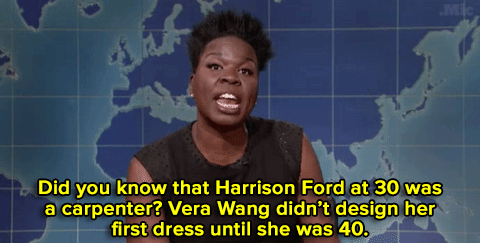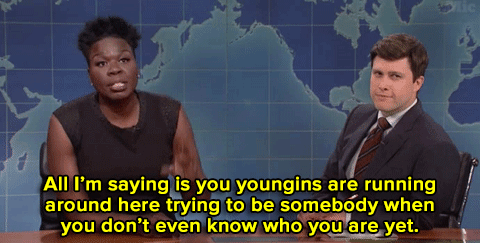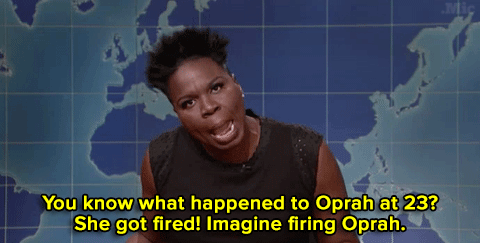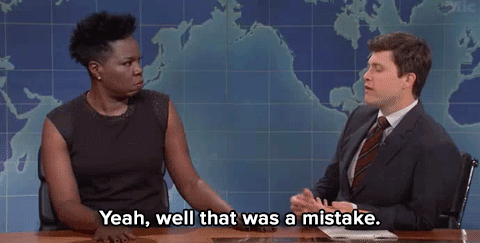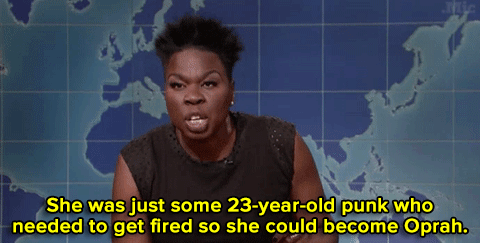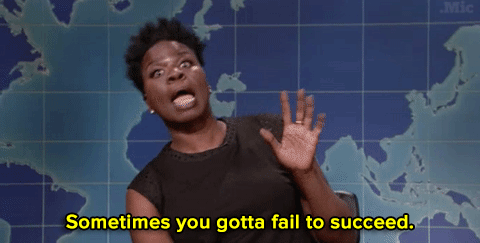21/ INFJ/ Writeblr: happy to read excerpts/chapters—> message me :) //Happy to get asks, and be tagged in games!
Don't wanna be here? Send us removal request.
Text
Writer problem no.1: Don’t use the word “said,” 5498 times.
Writer problem no.2: Also don’t sound like a walking thesaurus.
11K notes
·
View notes
Text
Things I never knew about depression until I finally had a doctor explain the disease to me
Depression can manifest as irrational anger.
My complete and total inability to keep anything clean or tidy for any amount of time is a symptom of my depression. I may never be able to do this. It’s important that I remember that and forgive myself when I clean something out (like my car) and it ends up trashed within a week.
Depression IS A DISABILITY. Requiring accommodations is okay.
Medications don’t make you better, they don’t cure your depression. They serve as an aid. Their purpose is to help you get to everyone else’s minimal level of functioning.
Depression can cycle through periods of inactivity. This doesn’t mean it’s gone away.
The reason I don’t feel like other people understand me is because … well … other people DON’T understand me. They can’t. They don’t have my disability.
Paranoia is par for the course.
Depression can and will interfere with your physical mobility. Forgive yourself when you can’t physically do something.
It’s entirely possible that I may never be able to live by myself. I can’t take care of myself. I need help to do it. And that’s okay.
125K notes
·
View notes
Text
Early Warning Signs for Substance Abuse and Mental Health Relapse
Attitude and Thinking Changes
Losing interest in your recovery or treatment plan
Thinking that you can use some alcohol or drugs to stay in control
Urges and impulses to use drugs or alcohol
Remembering only the pleasurable part of addiction & forgetting about the pain
Making decisions that put you in high risk situations for relapse
Not caring about yourself and what happens in your life
Thinking that therapy and/or medications aren’t needed anymore
Thinking of hurting yourself or someone else
Having difficulty thinking or speaking clearly
Seeing or hearing things that other’s can’t see or hear
Mood or Emotional Changes
Feeling sad, depressed, or hopeless-feeling like giving up
Becoming too energetic, excited, and feeling “on top of the world”
Feeling anxious, nervous, restless, or “on edge”
Feeling bored, empty, or lonely
Feeling lost, aimless, or without any direction
Feeling angry and hating other people
Feeling distrustful and suspicious of others
Feeling negative, cynical, or pessimistic
Behavioral Changes
Cutting down/stopping AA, NA, dual recovery, or support group meetings
Cutting down/stopping regular contact with your sponsor/recovery group
Missing counseling appointments without calling in
Missing other appointments or work without calling in
Withdrawing from other people and keeping to yourself
Putting yourself in high risk situations where there is pressure to drink or use
Stopping exercise or meditation program; stopping healthy habits
Cutting down/stopping medications without discussing it with your doctor/nurse
Changes in Daily Living or Physical Changes
Trouble falling asleep or staying asleep; starting to sleep too much
Changes in appetite; weight loss or weight gain
Changes in personal hygiene habits (stop showering, brushing teeth, or shaving)
Changes in energy level
494 notes
·
View notes
Text
Interview with my Fiance about our relationship-
1. What is the hardest thing about being with someone that has BPD?
- “You really never know what mood they’re going to be in.”
2. What is a good thing about being in a relationship with someone with BPD?
- “They’re passionate.. and they understand emotions like no other. They truly get what its like for someone to be going through a hard time.”
3. What is some advice for someone that has BPD and is getting into a relationship with someone that may not understand their mental illness?
- “Be straight forward, and honest with someone. Tell them what you’re going through. If they aren’t willing to understand, then they probably aren't the right one.”
- “Make sure you are putting yourself out there with someone that is patient. Don’t waste your time with someone that is short minded.”
- “Make sure to not give yourself away, you are worth more than that. Not everyone deserves a piece of you.”
4. What is some advice for someone that is going into a relationship with someone that has BPD?
- “Understand that their emotions are more sensitive than others. If you are not able to be empathetic, than you should not pursue this relationship.”
-” Patience is an important virtue. If you are someone that is easily flustered then I would not recommend being with this person.”
-”They will get angry, and they will say harsh things. You need to know, first off that this is most likely not your fault. There are times that you will not cause anything to happen, and then their emotions spiral. Its okay.”
5. Can you give us some things that work when your partner is going through an episode.”
- “Sometimes they see things in themselves that aren’t real, but they perceive it to be real. What i do in that moment is to keep my voice calm, and start talking positively to them. Listing strong traits, and speaking life into them.”
-” Learn what makes them laugh, and learn what makes them become set off. Its not that you are walking on egg shells, but certain words– certain things can really trigger their episode.Using what makes them laugh can help them fall out of an episode because this can distract their mind”
-” Just be patient, sometimes you cant always help. Sometimes being an ear is all they need. They need someone that understands..”
-” When they are having a bad day, i write a letter to her.. So that she is able to keep this with her. Or i will just do something that makes her feel appreciated. Like purchase her favorite drink (etc) to let her know i am thinking about her.”
6. Can you give me a short list of things that seem to ‘Trigger’ them into an episode?
- “Saying something like ‘Calm Down’ or ‘Chill out.”
- “When she is trying to be serious and i make everything into a joke. She doesn't feel that her feeling/ she is being taken seriously.”
- “When i tell her how she should feel about something. Like when i tell her she shouldn't let certain things get to her. I know that some emotions are out of her control.”
7. What is something you wish you knew before entering this relationship about BPD?
- “I had no idea what it actually was until she told me. At first i thought it was some kind of multiple personality disorder. I now know that people really do need to be educated on this. Not many people know about BPD.”
- “Not to sound rude, but a rule book. I really wanted us to work out, but at first i felt like i was walking on egg shells with her. I didn’t know what to say- or do. I guess as i went along i made my own rule book.”
8. What are some things that scare you about BPD?
- “Their anger and rage does not stop. It takes a lot to calm them back down.”
- “The possibility that they might harm them self during an episode, and they are so set on conflicting pain on themselves in this time.”
- “When they don’t like someone, even if it’s something minor.. they easily cut that person from their lives. ..I am often afraid that will happen to me….”
9. Do you see a change in yourself after the start of your relationship with your partner that has BPD?
- “Yes.. I don’t know if its her borderline, but she is very-very honest with me. She can give me the hard truth and help me snap out of certain things. She has a very low ‘Bull shit’ tolerance. This has helped me see things in myself i never have before. Both good and bad.”
- “Due to her borderline episodes.. i have seen a side of me that i never knew was there. I am able to love her, and give her the gentleness she needs in that moment. This has also really helped me with my patience.”
10. Why have you stayed with her through all of her episodes, and hard times. I am sure that this hasn't been easy for you.”
- “When it comes down to it.. at the end of the day; the real her, is the sweetest most loving person i know. She is truly the most genuine person i have ever met.”
- “She is either black or white with things, but never in the grey. Some people say this is a bad thing, i disagree. When she is passionate about something, she gives it her all. She is in full force with this emotion.”
- “She’s worth everything to me. She’s my best friend and soul mate. The episodes are temporary, but the woman I fell in love with is on the other side of them. The walks downtown, the cuddling while watching movies and the times together dancing to the old records; all of it and more.”
1K notes
·
View notes
Text
I just want to be a really famous author. Like not money-wise (though that’d be nice) but I just mean I want people to be intrigued and love my writing. I want people to write aus or fanficition based off of my world/characters, I want people to draw my characters because they’re so inspired by them, Id like a movie or tv show adaptation of my book(s) so it can hit an even wider audience, I want people to just enjoy reading my book and feel inspired to write or read more because of it. I want to be famous in a way that people know my name and think of my stories, and yeah maybe thats selfish or unrealistic but nothing is going to stop me from reaching my goals- even if it seems impossible.
1K notes
·
View notes
Text
Making your angst hurt: the power of lighthearted scenes.
I’m incredibly disappointed with the trend in stories (especially ‘edgy�� YA novels) to bombard the reader with traumatic situations, angry characters, and relationship drama without ever first giving them a reason to root for a better future. As a reader…
I might care that the main siblings are fighting if they had first been shown to have at least one happy, healthy conversation.
I might cry and rage with the protagonist if I knew they actually had the capacity to laugh and smile and be happy.
I might be hit by heavy and dark situations if there was some notion that it was possible for this world to have light and hope and joy to begin with.
Writers seem to forget that their reader’s eyes adjust to the dark. If you want to give your reader a truly bleak situation in a continually dim setting, you have to put them in pitch blackness. But if you just shine a light first, the sudden change makes the contrast appear substantial.
Show your readers what light means to your character before taking it away. Let the reader bond with the characters in their happy moments before (and in between) tearing them apart. Give readers a future to root for by putting sparks of that future into the past and the present. Make your character’s tears and anger mean something.
Not only will this give your dark and emotional scenes more impact, but it says something that we as humans desperately, desperately need to hear.
Books with light amidst the darkness tell us that while things are hard and hurt, that we’re still allowed to breathe and hope and live and even laugh within the darkness.
We as humans need to hear this more often, because acting it out is the only way we stop from suffocating long enough to make a difference.
So write angst, and darkness, and gritty, painful stories, full of treacherous morally grey characters if you want to. But don’t forget to turn the light on occasionally.
Support Bryn’s ability to provide writing advice by reading their debut novel, an upbeat fantasy about a bloodthirsty siren fighting to return home while avoiding the lure of a suspiciously friendly and eccentric pirate captain!
41K notes
·
View notes
Text
Heroic Traits and Their Faults
Accepting – too accepting; willing to excuse extreme behavior
Adaptable – used to traveling from situation to situation; may not be able to fully adapt/live in a permanent situation
Affable – accidentally befriends the wrong sort of people; pushes to befriend everyone
Affectionate –inappropriate affection
Alert – constantly on edge; paranoid
Altruistic – self-destructive behavior for the sake of their Cause
Apologetic – apologizes too much; is a doormat; guilt-ridden
Aspiring – becomes very ambitious; ruthless in their attempts to reach goals
Assertive – misunderstood as aggressive; actually aggressive; others react negatively when they take command all the time
Athletic – joints weakened from exercise; performance-enhancing drug abuse; competitive
Keep reading
51K notes
·
View notes
Text
Things almost every author needs to research
How bodies decompose
Wilderness survival skills
Mob mentality
Other cultures
What it takes for a human to die in a given situation
Common tropes in your genre
Average weather for your setting
499K notes
·
View notes
Text
Character Development: Speech
Finding your character’s voice is one of the most important things you can do to make your character more fully developed. It can often be the thing that sets your character apart and makes the reader easily able to identify them. Creating your character’s voice breathes life into them.
What to think about:
Formal or informal
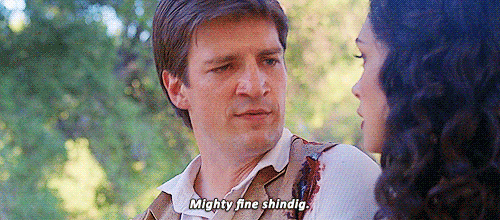
Can be shown with:
sentence structure/complexity (shorter vs. longer sentences, number of clauses, etc.)
contractions (e.g. y’all versus you guys, I am vs. I’m)
word choice (simple or advanced; more poetic vs. more practical, blunt vs. subtle)
word order/syntax (can indicate dialect and/or formality)
Things to ask yourself:
- If my character speaks formally/informally, is there a reason?
- Does it indicate their status?
- Or is it a rejection of their status? (e.g. does your highborn character prefer to speak informally because they hate their position in life, or does your lower class character speak more formally to make themselves appear higher class?)
- Is the way they speak normal for their society? In other words, if your character is, say, an alien from a highly formal culture, they won’t think of themselves as speaking abnormally. But if they visit another, less cultured planet, they’ll stick out like a sore thumb.
Catchphrases
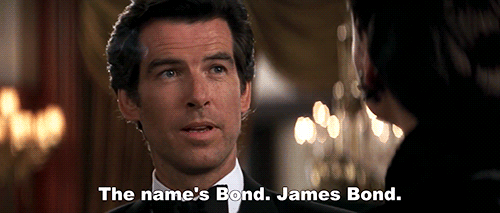
When done well, this can be amazing. When done awfully, it makes the reader sigh and roll their eyes in exasperation. So, be careful not to overdo it!
Catchphrases can include:
slang (e.g. wicked, if your character is from Boston, like Faith Lehane from Buffy: the Vampire Slayer)
exclamations/swears (”Hell’s bells!” - Harry Dresden, “Zoinks!” - Shaggy, “Holy ___, Batman!” - Robin at various times)
automatic responses (such as in response to how they are, e.g. “Five by five.” - Faith Lehane, or in response to a question they don’t want to answer, e.g. “Spoilers!” - River Song)
greetings/goodbyes (”Hello, sweetie.” - River Song, “What’s up, Doc?” - Bugs Bunny)
introducing themselves ( “The name’s Bond. James Bond.” - James Bond, “Trust me. I’m the Doctor.” - the Doctor, “Denny Crane,” said repeatedly by Denny Crane)
an explanation/repeat phrase of some other classification (”Dammit, Jim, I’m a doctor, not a ________.” - Bones, “Your mission, should you choose to accept it…” - Mission Impossible, “Live long and prosper.” - Spock, “Same thing we do every night, Pinky! Try to take over the world!” - the Brain)
A lot of times, these catchphrases can become inside jokes, and merely referencing them is enough (think: “It’s a bird! It’s a plane! It’s Superman!” or “Holy _______, Batman!”).
But sometimes, it can feel a little forced (like Miss Martian’s constant use of “Hello, Megan!” all the time in Young Justice). You want to use these catchphrases sparingly, and when they make sense. While you and I might say “fudge” or another such exclamation any time we trip, the reader does not want to read that twenty times in the same chapter because your character is a klutz. This is the art of writing, not the hyperrealism of writing. You want it to mean something, so use it only when needed.
Things to ask yourself:
- Does this character really need a catchphrase? How will this help establish character?
- Does the catchphrase come from the type of place they live or things they do? For instance, Harry Dresden is a wizard, so when he swears he says, “Hell’s bells,” which reminds us of his job and difference from those around him. This wouldn’t be the same if he simply said, “Dang it,” any time he swore.
- Is there a reason they have a catchphrase? Is it deliberate or unconscious on their part?
- Is there a way you can flip the catchphrase and use it to signal a shift in the story or an unexpected twist (e.g. signifying that somehow your character as switched bodies with another person, like Faith from Buffy: the Vampire Slayer; alternatively, that something isn’t right with the character, because of certain events, and they’re not saying their usual catchphrase)?
Verbal Tics*
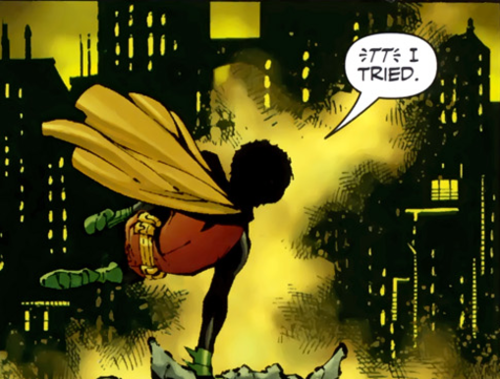
Verbal tics are sounds that are not really words, more like filler, that get used almost unconsciously in everyday speech. Words like “ehm,” “uh,” and so on are all verbal tics. (Various internet sites assure me that throat clearing and sniffing can also be included here, but I leave that up to you.) For this section, however, I am also including words, but only those words that are filler. I am also including alterations to the text that represent how someone is speaking.
Now, I know that in any writing guide you read, they want you to NOT, NOT, NOT use regular tics like these in dialogue. It’s annoying, repetitive, annoying, serves no purpose, annoying, and so on. In a sense, they are very much right. Don’t use verbal tics for every character! But using them to distinguish one character (or a couple, in different ways) can work very well if done right.
Verbal tics can be:
words (examples: “You don’t wanna mess with us, see, ‘cause we’re dangerous, see,” or “So, I went to the mall yesterday, and there was this dress, so I bought it, so…” or even “Like, I’m not even sure what Vanessa was, like, wearing at that party last night?”)
filler sounds (e.g. “eh,” “um,” “uh,” “er,” “hrrgh,” “urk,” and so on)
messing with the letters and format of the sentence (e.g. dragging out the letter, making every word separated for a slow speaker, running words together to indicate speed, etc.)
Examples of verbal tics (this is a section in which examples are very helpful, so here you go):
Damian Wayne, the current Robin at DC Comics: uses the distinctive sound “tt” in his appearances to express his emotions, even - tt - other comic series that he guest-stars in
Asmodeus from the Redwall series: drawsss out the letter ssss becaussse he isss a ssssnake
The Flash, at various points in DC Comics: speakswithallthewordstogetherbecausehe’stalkingsofast!!!
Canada, from the Hetalia anime: ending every sentence like a true Canadian, eh?
Things to ask yourself:
- What purpose would a verbal tic have for my character? Do they really need one?
- Is the verbal tic connected to an emotion, or is it involuntary? (Generally, in real life, it is involuntary, but once again, this is art, and so it can have meaning, if you so choose!) What emotion might it be connected to?
- Are they aware of it? Are they embarrassed by it? Do people make fun of them for it?
- Is it part of their dialect/culture?
- Is it a recent thing or have they always done it?
- Where is the balance between making it seem like a realistic tic and annoying my reader with the repetitiveness?
*I am not referring to any medical diagnoses here, although if you want to go right ahead and use medically diagnosed tics for a character, please feel free to! However, this section does not deal with those, as I am not an expert, although I understand there might be some confusion due to the terminology I have used. Please let me know if there is a different term I should be using instead, as I couldn’t find one anywhere. Thanks!
Ways of addressing others

The way that your character addresses other characters says a lot about how they view and respect those around them, in addition to their personality. In addition, if you establish a character addresses others in a certain way (say, by last name only), then when they break this pattern, the reader knows it is important.
Different ways of addressing others:
nicknames (either a shortening of someone’s name, even if it’s not usually shortened, or a name reflecting some characteristic of theirs - e.g. “Jane” to “Janie,” or “Shorty,” or Tony Stark’s brand of nicknames, like “Capsicle” or “Rock of Ages”)
titles (similar to nicknames, but more formal - e.g. a character referring to people by their rank, job, familial relations, etc.)
last name only
full name only (never shortened, includes first, last, and middle names)
no nicknames (never refers to a character by anything other than what’s printed on their birth certificate, can be combined with others on these lists, especially the previous two)
familial referencing (e.g. Aragorn, son of Arathorn)
insults (ranging from harmless to aggressive, can be combined with the first one on this list, not always swears)
by physical/personal characteristics [epithets]** (e.g. by gender, hair color, eye color, traits - for instance, “boy,” “you, redhead!” or “the only one of you with any spine”)
** This one tends to work best in stories set in older times or in sci-fi/fantasy. Epithets can be insults, but the epithets I am thinking of are more Homeric in nature.
Things to ask yourself:
- Is there a reason behind my character’s decision to address people in this way? Does it indicate a lack of trust? A need to crack jokes?
- What does this say about my character’s background? Is this the normal way to address people where they come from? Is it abnormal to do so in the place they are now?
- Does my character evolve from speaking this way? Do they start speaking in a different way, either deliberately or unconsciously? Why?
Accents

Accents are tricky. There are several different ways to write accents (I’m currently working on a post that explains them further), but basically no matter how you write an accent, there are a few things you can do to portray the accent.
slang (e.g. barbie = barbecue in Australian slang)
word order/syntax (e.g. “I’m after going to Mary’s” = “I just went down to Mary’s” in Hiberno-English)
contractions (I’ve versus I have, or y’all versus ye vs youse vs you and so on)
idioms (words or phrases that do not have equivalents in other dialects/languages/places)
diction (words meaning different things, like “chips” in American English and in British English)
verbs (e.g. “ain’t,” “be,” “runnin,” or mixing up tenses)
Keep in mind:
- be RESPECTFUL of whatever accent you’re trying to portray, especially if it’s not your accent
- don’t overdo the accent because it might end up sounding stereotypical (and that is not respectful - see above)
- you should get a feel for the accent you’re trying to write. Listen to the music, read something in that accent, watch/listen people talk in the accent until you hear the rhythm and way people with that accent talk.
Things to ask yourself:
- Is the way I am portraying this accent as accurate as it is within my power to make it? (In other words, have I done my research?)
- How does my character feel about their accent? Are they in a place where their accent is normal? Are they in a place where they stand out because of their accent?
- Continuing on that thought, how noticeable is their accent? Is it the equivalent of someone from, say, Boston going somewhere else in Massachusetts, or the equivalent of that person from Boston going to California, or the equivalent of that same person going to London? Each one becomes more and more noticeable the farther the person goes from their home.
- Has my character made an attempt to hide their accent? Deliberately intensify it? Or do they just not care?
- Does it get stronger or weaker based on their emotional state?
Emotion
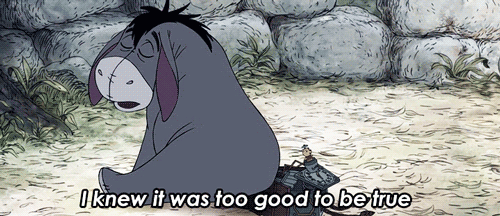
The emotions your character normally expresses when they’re speaking say a lot about their general emotional state. In addition, if there is a change in their emotional state, readers will be able to know that just from the way they talk (though context and body language are always useful!)
You can show emotion in speech through:
speed (if they’re easily excited, they might talk fast! and with a lot of exclamation points! But if they’re sad a lot…well, they might talk a bit more slowly and take their time…kind of like Eeyore.)
word choice (is it generally positive? negative? Or somewhere in between?)
reactions to other characters’ dialogue (are they generally patient and wait for the other person to finish? Or do they jump in because they’re so excited about something the other person has said?)
volume (are they loud? Quiet? Are they normally quiet but get loud when they’re angry? Or vice versa?)
understandability (not necessarily stuttering or stumbling over words, but can be; are their procession of thoughts/logic easy to understand? Is their conclusion sensible? Are they understanding others easily or do they need clarification? For instance, if your character is easily excited, maybe their dialogue comes in a jumble of words that is hard to understand. Maybe they’re so angry they’re not listening to anything the other person is saying, and their dialogue reflects that.)
punctuation/capitalization (are they unsure of themselves and what they’re saying a lot, so they use a lot of question marks like this? Are they aggressive in their emotions and so THEY SHOUT LIKE THIS!!! Are they…kind of thoughtful and take the time to…express themselves correctly…or are they - well - I mean are they - like - the kind of people who - you know, backtrack and correct themselves a lot?)***
***Again, you want to be careful not to overdo this, as it can get annoying AND lose the effect it has on the reader. If one of your characters SHOUTS. EVERYTHING. THEY. SAY. THEN WHEN SOMETHING REALLY IMPORTANT HAPPENS TO THE CHARACTER AND THEY GET VERY EMOTIONAL AND SHOUT, IT’S LOST A TON OF EMOTIONAL IMPACT ON THE READER. Like the end of that sentence. Did it make a big impact on you? It should - it was the entire point of the sentence. But it was lost amidst all of the other capitalized words. The same thing goes for any type of repeated punctuation/capitalization for a character - you want to make sure it counts.
Things to ask yourself:
- Why does my character express this emotion generally?
- What does it say about their outlook on life?
- What does that say about how they view other people?
- Does their dialogue rely on these techniques too much when trying to show their emotions? How can I combine these with their body language?
Focus/Fixations

This is a pretty simple one. Focus can be organization of thoughts - basically, what idea(s) can they or want to focus on. A character that is very focused might be a practical person who is focused on the here and now, and their plans for whatever situation they’re in. A character that is less focused might be someone who thinks of several things at once, which reflects in their dialogue.
Fixations are the things that their minds keep coming back to. So for example, if a character is worried about how they did on a test, throughout the story their dialogue might keep returning to that subject or referencing it. For instance: “Hey, when do you think we’re getting that test back?” or “Wow, this is pretty hard. Almost as hard as that test we took.” You want to make it less obvious than this, of course! (A good example is Anya from Buffy: the Vampire Slayer and her obsession with making money.)
Ways to show focus/fixation:
number of ideas/topics in their dialogue at a time
relevance of topics to the present
relevance of topics to the past/future
how they react to people who do not share their focus/fixation (e.g. a focused person finds it annoying when a person who is not focused keeps interrupting them, or a person who is less focused finds it annoying that a person who is focused is paying too much attention to one thing)
Things to ask yourself:
- How focused are they when talking?
- Do they think of a million things at once, or just one at a time?
- What are some short-term fixations they might have? Some long-term?
- Why might they be focused/not focused? Why might they have these fixations? What do these fixations say about their character?
- Do the focus/fixations change over time? How? Why? Does it reflect a change in their character?
- Am I making my character too focused/fixated on something? Is it detracting from or adding to the story or the character arc?
How others see them vs. how they see themselves
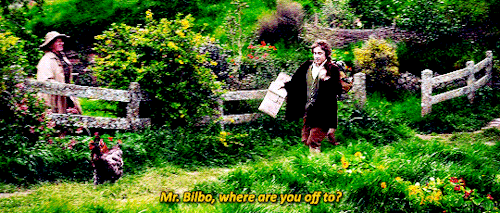
This one is probably the broadest one on the list. There aren’t specific things you can do to get this across (it’s more of a general thing), but it’s a cycle that you should keep in mind.
Your character sees themselves in a certain way. For instance, they might think of themselves as helpful, or kind.
The way that they see themselves can influence why they do things (e.g. if they see themselves as a person who doesn’t go on adventures, like Bilbo Baggins, they will refuse to go on an adventure.)
The actions that they take influences how other characters see them, but the other characters do not necessarily see your character’s perception of themselves (e.g. in the Hobbit, Bilbo sees himself as helpful and averting war by giving the Arkenstone to the Elves. He thinks he is being a good friend. However, Thorin sees it as a betrayal and thinks Bilbo is disloyal and not a good friend. Both of them at the time of their actions think they are right.)
How other characters see your character influences how they treat your character (e.g. Because Thorin thinks Bilbo has betrayed him, he threatens Bilbo and rejects him as a friend. Bilbo escapes with his life, but only through the help of the other dwarves. Again, to each character, their own actions are justified and so their dialogue reflects their belief that they are right. So, when they talk to each other, both of them think that they are right and the other is wrong, and you can see this in their dialogue.)
How they treat your character influences how your character sees and reacts to these people, and can influence your character’s perception of themselves (e.g. Because Thorin rejected Bilbo and called him a traitor, Bilbo is bewildered and believes for a time that Thorin cannot be saved, and he feels like he failed).
The cycle continues.
All of this is reflected in their dialogue to each other.
Knowing how each of your characters see each other and themselves will influence their dialogue and reactions to each other. Characters can misunderstand each other, underestimate someone, or help someone feel better about themselves, just to name a few things.
Things to ask yourself:
- How does my character see themselves? Why? Are they one hundred percent correct?
- How do other characters see my character? Why? Are they one hundred percent correct?
- Does my character have any idea of other people’s perceptions of them? If so, do they care? Is my character correct about what they think other people think about them?
- Will my character’s perspective of themselves/other people change? Why and how? Will other characters’ perspectives of my characters change? Why and how?
- How do all these reactions to each other influence the story?
Hope this helped! Let me know if there are any questions.
- Riona
15K notes
·
View notes
Text
Invaluable writing tips (From Blake Snyder’s “Save the Cat”)
I just finished this book on screenwriting and have highlighted some amazing advice for novelists as well:
1. Save the Cat
This refers to a scene at the beginning of yoru manuscript in which the main character does something that makes the reader root for them them i.e. saving a cat.
This doesn’t have to be something altruistic - it can include smarts or humour or naivety - just something that will make the reader want to follow this character through the story.
Without this scene, you’ll probably end up with a boring character. And no matter how amazing your plot, you need a “followable” character to carry it.
2. The Pope in the Pool
This refers to a scene in which necessary exposition is given whilst the audience is distracted by something more entertaining i.e. having the Pope explain important backstory aspects whilst doing laps in the Vatican Pool.
This is the best way to give readers the information they need whilst still keeping them engaged. Something funny/interesting/moving should happen whilst this necessary exposition is provided.
3. Double Mumbo Jumbo
This refers to the mistake many writers make in asking readers to believe in more than one type of magic/miracle. This suspends reality too much and causes the reader to lose faith in the realism/probability of your story.
So, if you already have magical fairies, don’t throw aliens into the mix as well.
ONE magical element is enough.
4. Laying Pipe
Another error often made is writing a story that needs too much set-up. This means that so much backstory must be explored in the first part of the novel that your catalyst only occurs at page 100 or so.
This will cause readers to lose interest long before they’ve reached the inciting incident. If you don’t get the beginning right and move on the exciting stuff as soon as possible, it doesn’t matter how great your ending is, since few readers will get there.
5. Watch out for that Glacier
This is when the danger in your novel takes too long/perhaps the whole book to get to your characters/to threaten them. Therefore, the reader is aware that there is some eventual threat, but the characters aren’t affected by it throughout the story.
It’s a glacier coming for them rather than a missile. And it dampens the tension.
6. The Covenant of the Arc
Every somewhat important character in the novel should change, except for the bad guy. This is what will ultimately distinguish your good guys from your villain: moral change.
So, take a look at the journey of every primary and secondary character in your manuscript and ensure that they grow/experience some for m of change that is brought about by the events in the story.
7. Keep the Press Out
This is the tip I think should be used with the most circumspection. It’s for you to decide whether you want to follow this piece of advice or not.
This tip calls for leaving media coverage/the press out of your story. If some supernatural/extraterrestrial event occurs in a secluded neighbourhood and remains a family secret, it’s much easier for your reader to believe that it could really have happened than if the whole world is supposedly in on it.
Like I said, use with discretion.
These are all Blake Snyder’s tips (not mine) and are explored in greater detail in the book. So, if you would like more information and more great advice, I suggest grabbing a copy.
Reblog if you found this useful. Follow me for similar content.
16K notes
·
View notes
Text
books?? amazing. paperbacks?? soft, cozy, may fit in your pocket, cheap so you don’t feel bad for taking notes in them. hardcovers??? beautiful, pristine, ground you into the world they hold by making you grip them tighter, the stars of every bookshelf. ebooks?? convenient, cheap, always with you, a vast library that you can hold in your palm. new books?? crisp, the smell of wood, ideas waiting to imprint themselves upon the world. old books?? objects transcending history, sweet smelling, enriched by the hands that stroked their pages. books.
104K notes
·
View notes
Text
some highlights from my writing seminar with honestly one of my favourite authors of all time who shall remain nameless bc i dont want her to know i was spilling her secrets online
The first trick is to detach yourself from your idea. You don’t have just one novel inside you, and it’s not a big deal if you don’t finish this novel.
She was skeptical of the common advice “just write!!1!” - she talked about how long ideas for her most popular novels were marinating inside her before she properly wrote them
As a continuation of that, she was a big believer in knowing what you want to write before you write it. Not what you’re going to write, what you want to write.
The first thing she decides about a novel is what the mood is going to be, and this informs every other decision (e.g. the mood for Shiver was bittersweet)
Ideas should be personal, specific, exciting and they should exclude secondary sources. A personal idea isn’t necessarily autobiographical (which should be avoided), but it speaks to your emotional truth.
She said she had been read Ronsey fanfiction and she couldn’t view her car in the same way since.
Story is the thing that seems most important to reader but is most changeable to the author - story is subservient to your mood and your message. Change what you like in the plot as long as your book retains its sense of self.
Story is conflict, exploration and change. A good story has active tension -the characters want something, instead of just wanting something not to happen (e.g. wanting to kill an enemy instead of simply defending a stronghold against an enemy)
A story needs to have a concrete end, something to be done.
Satisfaction is important - deliver what you promise to the reader. The other shoe has to drop. Ronan Lynch doesn’t ever talk about his feelings, so its rewarding when he does.
Earn your emotional moments (she threw shade at Fantastic Beasts lmao)
Forcing a character to be passive is dissatisfying to the reader.
Characters are products of their environments, consistent/predictable, nuanced and specific, moving the plot, and subservient to other story elements.
She always starts with tropes for ensemble casts like sitcoms. Helpful for building good character dynamics.
Write scenes with characters saying explicitly what they’re thinking and then go back and make them talk like real people in the edit.
An action can also prove what they’re thinking, instead of making them say it or another character guess it (e.g. Ronan punching a wall).
Move the reader’s emotional furniture around without them noticing.
All her books follow the three act structure. Established normal -> inciting incident -> character makes an Active Decision -> fun and games -> escalation -> darkest moment -> climax.
Promise what you’re going to do in the first five pages.
Read your book out loud. Record yourself reading it.
If you have writer’s block, it’s because you’ve stopped writing the book you want to write. She likes to delete everything she’s written until she gets back to a point where she knew she was writing what she wanted to write, and then carrying on from there.
24K notes
·
View notes
Text
I finished my first draft… What now?
I sometimes see posts telling you what to do after you finished writing. Many of them focus on getting the sentences to flow nicely, catching typos or making sure the grammar is sound. For me, there’s much more work to be done before I can get on with word choice and grammar. I want to tell you about the different stages of editing I’m planning.
I’m working from big to small, because it’s no use fretting over synonyms in a scene you’ll end up cutting out later.
These are my drafts:
1. Just write
Check. You’ve gone that. You got the first draft on the paper. Congratulations! You rock!
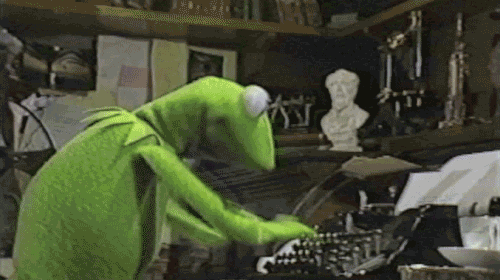
2. Add and cut
You’ve probably heard that editing is cutting. “A second draft needs to be shorter than the first draft, because you cut out any unnecessary words.” Yes and no. I agree you need to cut them out, but not yet.
Read through your entire story first, noting if anything needs to be added or cut out. Scenes where you were telling and you needed to be showing: rewrite them, add more words. For example: “And then they fight.” No, show me the fight. Scenes where you repeat yourself: cut out the repetitions if they have no function.
Think of pacing. Pick it up for the exciting scenes and then give your reader some breathing room. Pick it up towards the end. Add a small filler scene to change a regular reveal into a cliffhanger.
This is also the draft in which you fix any plotholes and rearrange scenes if they need to be in a different order.
If you finish this draft, you completed probably 80% of the work needed on your story. *high five!*
3. Group the scenes into chapters
A chapter consists of several scenes. If you have not grouped them yet, read through the entire story and place the chapter breaks where they feel right. If you have written your story into chapters, read it through to make sure that the chapter breaks are where they supposed to be.
Make sure there is a hook, big or small, at the end of each chapter to make the reader read on. If there isn’t one, add one or put the chapter break somewhere else.
4. Are there darlings to be killed?
You know your darlings. Scenes, characters, ideas or sentences you don’t want to cut because you really like them, but they serve no purpose in your story. Or worse, you rewrite a good plot into a mediocre one to make sure the darling doesn’t need to be killed.
Knowing myself, any darlings in my story probably involve random mentions of space and dinosaurs.
How to spot darlings: read through your entire story and ask yourself honestly:
Is the story structure still working? (Plot/pacing/…)
Is everything logical?
What’s the function of this chapter? Of this scene? Of this paragraph?
If it serves no purpose, kill them.
Notice I’m still not telling you to check the grammar.
5. Voice
By know, you really know your characters. You know how they should react, how their thoughts sound, and if they have any quirks. Read through your story and make sure all the actions and dialogues are in character. Pay extra attention to the first part of your story, because you didn’t know them as well as you did at the end.
You can do this for all your characters in one go, or go through your story for each character individually, whatever serves your story best. I will go through my story four times in this draft, once for each of my four major characters.
6. Optional genre-specific draft
I’m writing something funny, so I’m dedicating an extra draft to make sure there is enough humor in it. If you write a romantic story, check for romantic details. If you write horror, check if you need to add extra creepy details. Add foreshadowing if that makes your story richer.
7. The time has come
Yes. I’m finally telling you to check the grammar, synonyms, tenses, unnecessary words, adverbs, variations of “said”, commas versus semicolons and all the other stuff you want to check. Go wild.
8. Extra things publishers and agents like
Make sure your first sentence is spot-on. Make your first scene brilliant. Make your first chapter a perfect chapter.
Rewrite the first and last alinea of every chapter. The goal is to make people want to gush to their friends, “I’m reading this book and you NEED to hear this paragraph, let me read it to you because it is the. best. ever.”
***
I know it can be difficult to see your mistakes and not tackle them immediately. For me, it works if I signal them to future-me: I write “bad writing”, “research this” or “why????” in the margins and I put a squiggle under weird paragraphs or words. The reason you want to tackle it now is to make sure the idea or the mistake doesn’t escape you later. By signaling it, you make sure it can’t escape, but you’re not losing time with micro stuff when you still have macro stuff to do.
Note that I will probably only change like 0,1% of the story each time I go through it, especially in the later drafts, but this way I won’t get distracted by other to do’s. If I try to do everything in one or two drafts, I can’t possibly see or do everything.
And now you’re done, you magnificent unicorn of a human being! You deserve the highest of fives!

I hope this is clear! You can always ask me if you have more questions. Follow me for more writing advice.
Tag list below, people I like and admire. If you want to be added to or removed from my tag list, let me know.
@writingquestionsanswered @brynwrites @cogwrites @tlbodine @neil-gaiman @sapphicauthor @thatsmybluefondue @maggie-stiefvater @abbywritesstuff @bronwyn-writes @sunblushedgoblin @forlornraven @elliewritesstories @tiorickriordan @heywriters @authors-haven @helpfulwritingstuff @wordsnstuff @writingtipsandtricks @clevergirlhelps @itstartswithablankpage @thebibliosphere @compassrosewriting @fixyourwritinghabits @theliteraryarchitect @git-writing-good @thewritershandbook @promptsforthestrugglingauthor @goddessofnothingatall @therska @stephrawlingwrites @cometworks @elarasterling @writeblrconnections @the-words-we-never-said @writingwhithotchocolate @i-rove-rock-n-roll @maskedlady @no-time-like-write-now
3K notes
·
View notes
Text
me: *opens a new doc for a new fic*
the 629 started wips of mine that have been sitting untouched for 84 years:

25K notes
·
View notes



